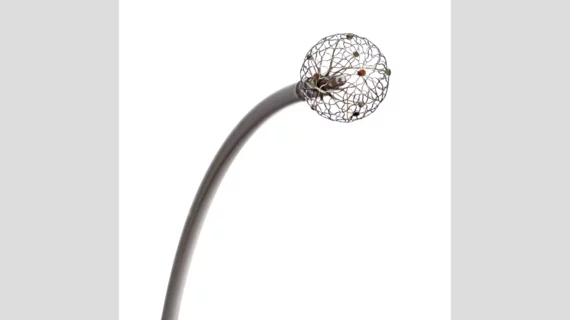Medtronic has received CE mark approval for its Affera Mapping and Ablation System, which include the company’s Sphere-9 Catheter and its Affera Prism-1 Mapping Software.
The Affera Mapping and Ablation System was developed to treat heart rhythm issues such as atrial fibrillation (AFib) using pulsed-field ablation (PFA) or radiofrequency (RF) ablation. According to Medtronic, the catheter’s nitinol 9mm tip could help clinicians shorten ablation procedures by lowering the required number of applications. The mapping software, on the other hand, was designed to provide users with helpful information during the procedure.
“Current technologies require the use of separate high-density mapping and ablation catheters,” Khaldoun Tarakji, MD, vice president and chief medical officer of Medtronic’s Cardiac Ablation Solutions business, said in a prepared statement. “The ability to map, ablate and validate with the Sphere-9 Catheter enables the physician to eliminate the need to exchange catheters and empowers them to choose the energy source, whether RF or PFA, based on the patient's needs. All this leads to improving efficiency and most importantly, enhancing the safety of ablation procedures for our patients.”
“Electrophysiology is evolving at a rapid pace, and we believe we are uniquely positioned to be category creators once again with the all-in-one Sphere-9 Catheter, just as we did when Medtronic pioneered cryoablation technology,” added Rebecca Seidel, president of Medtronic’s Cardiac Ablation Solutions business. “Along with the PulseSelect PFA System, we are proud to be among the first to bring novel single shot and focal PFA technologies to patients around the world.”
Medtronic acquired Affera in August 2022 in a deal reportedly worth $925 million. The company already had a 3% ownership in Affera prior to the acquisition.
The Affera Mapping and Ablation System is expected to be commercially available in Europe within the next few months. It is not yet fully approved in the United States, but is being used on an investigational basis.

